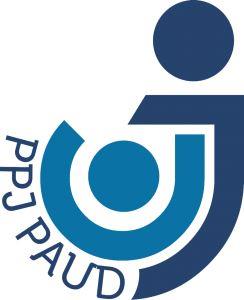Fenomena Orang Tua Dalam Mengikutsertakan Anak Usia Tk (Usia 4 – 6 Tahun) Belajar Ekstra Calistung
Abstract
Full Text:
PDF (Bahasa Indonesia)References
Departemen Pendidikan Nasional. 2007. Pedoman Pembelajaran Bidang Pengembangan Kognitif di Taman Kanak-kanak. Jakarta: Depdiknas.
Dhieni, Nurbiani. 2008. Metode Pengembangan Bahasa. Jakarta : Universitas Terbuka.
Eliyawati, Cucu. 2005. Pemilihan dan Pengembangan Sumber Belajar Untuk Anak Usia Dini. Jakarta: Depdiknas.
Gedrose, A. 1996. Guiding Children’s Behaviour. Colombia: Canadian Cataloguing in Publication Data.
Kementerian Pendidikan Nasional. 2010. Pedoman Pengembangan Program Pembelajaran di Taman Kanak-kanak. Jakarta: Kemendiknas.
Kemdiknas. 2010. Tingkat Pencapaian Perkembangan Anak TK. Jakarta : Kemdiknas RI.
Morrison, George S. 2007. Early Childhood Education Today.
Sacramento. 2015. California Preschool Program Guidelines. California: The California Departement Of Education
Samani, Muchlas dan Hariyanto. 2011. Konsep dan Model Pendidikan Karakter. Bandung: PT Remaja Rosdakarya.
Santrock, J. W. 2007. Perkembangan Anak, Jilid II. Jakarta: Penerbit Erlangga
Sudarna. 2014. PAUD Pendidikan Anak Usia Dini Berkarakter. Yogyakarta: Genius Publiser.
Sudiapermana, Elih. 2005. Model Pengukuran Sosial Pada Pendidikan Non Formal dan Informal. Jakarta: Nagara
Sujiono, Yuliani Nurani. 2005. Metode Pengembangan Kognitif. Jakarta:Univerasitas Terbuka
Sujiono, Yuliani Nurani. 2013. Bermain Kreatif Berbasis Kecerdasan Jamak. Jakarta: Indeks.
Suyadi dan Ulfah, Maulidya. 2013. Konsep
DOI: https://doi.org/10.30736/jce.v1i2.19
Refbacks
- There are currently no refbacks.
JCE indexed by


2.png)







.jpg)
